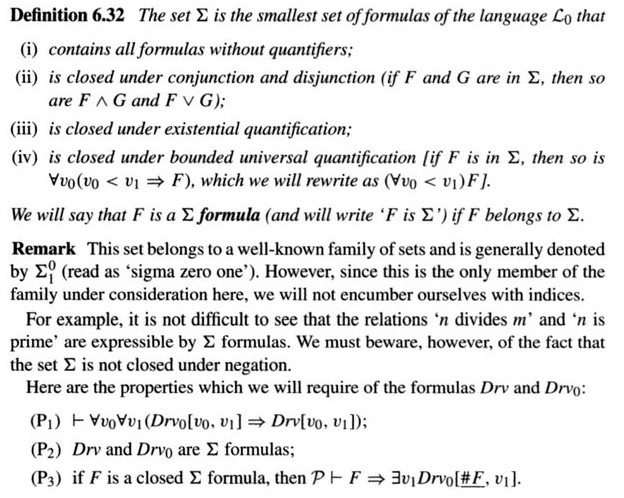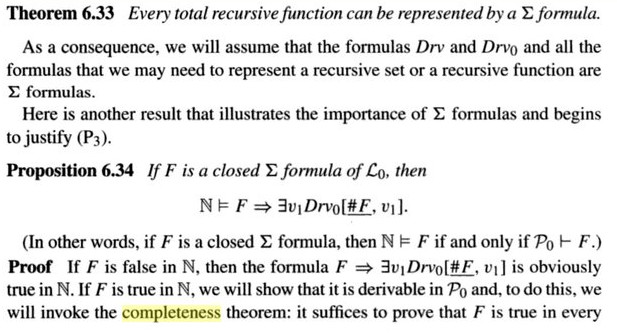Certainly the incompleteness theorem can be proved purely syntactically and without reference to the completeness theorem. There is another MO question with more details.
I haven't worked through the original proof in detail, but I'm sure that Gödel took pains to limit himself to syntactic arguments since Hilbert's program was one of the major motivations for his investigations. As for the completeness theorem, I'm surprised that you say that all the proofs you have read use the completeness theorem, because I don't think I've seen any proof that uses the completeness theorem. Can you cite an example where the completeness theorem is used to prove the incompleteness theorem?
EDIT: I was able to find Google Books snippets of the Cori–Lascar reference mentioned by the OP in the comments below. (I think that
${\cal P}_0$ denotes something like Robinson's arithmetic and
$\cal P$ denotes something like first-order Peano arithmetic, but this notation was not defined in the snippets that I was able to view.) As you can see, the completeness theorem is indeed invoked in the proof of the second incompleteness theorem. But once again, as discussed in
the other MO question, the completeness theorem is not really needed for the proof.


[stuff skipped]

[stuff skipped]





